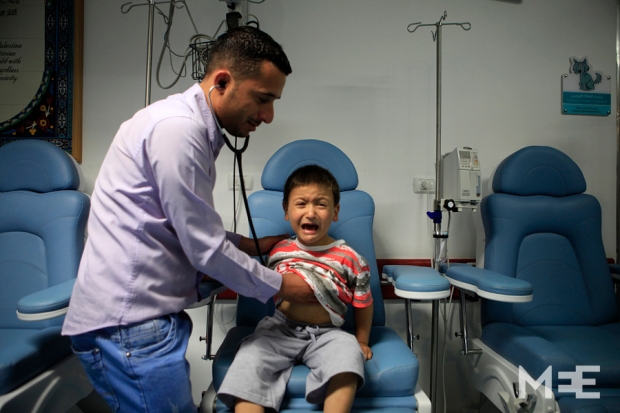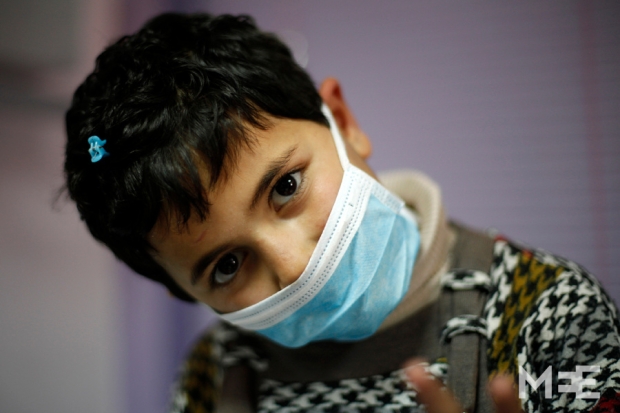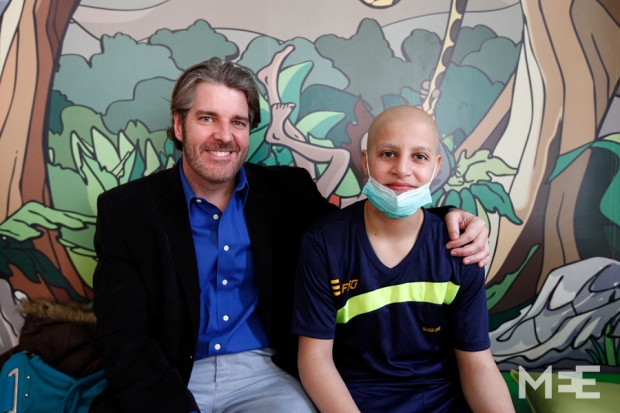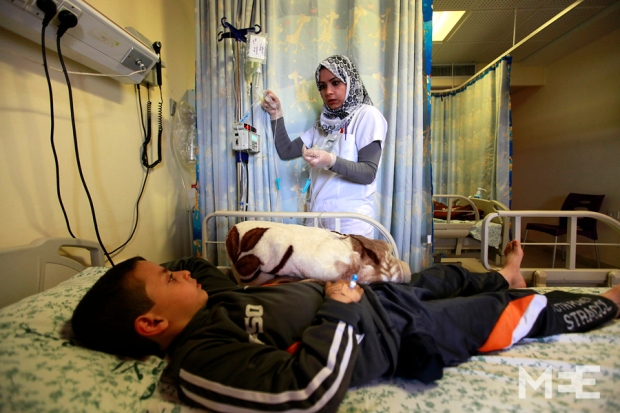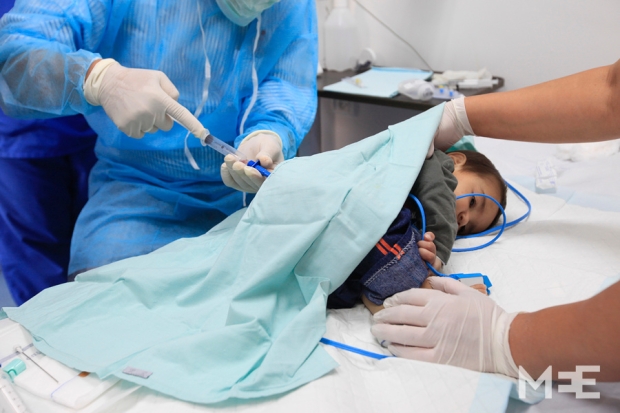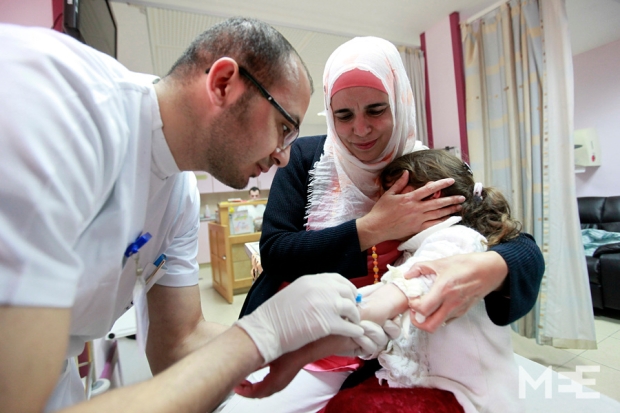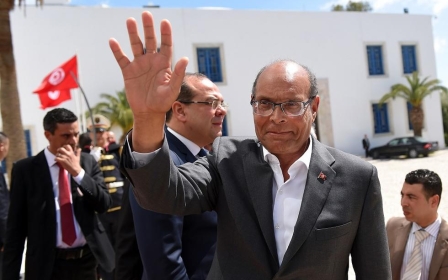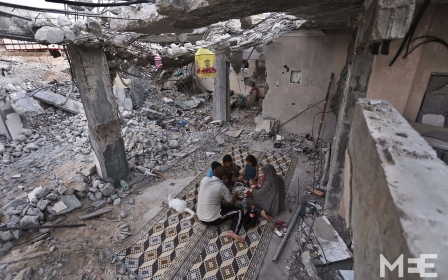Cancer in Palestine: Children fight disease and occupation

Hana is an eight-year-old girl from Khan Younis in the south of the Gaza Strip. When she started to get sick her family took her to the doctor, to no avail. They ended up visiting every single hospital in the Strip for help but it was only when her condition deteriorated so badly that the little girl could no longer walk, that her doctors finally ordered her transfer to a Palestinian hospital in Jerusalem. Within a day, she was diagnosed with Leukaemia and she is currently being treated at the Augusta Victoria hospital in East Jerusalem.
Medical infrastructure has been devastated by the recurrent wars and, as a result, health services for cancer patients in Gaza are extremely inadequate.
Currently, there is only one paediatric oncology department in the besieged Strip. It's located in the Al-Nasr Children's Hospital. It has just four doctors on duty and only 13 beds and lacks the necessary basic equipment needed to carry out a comprehensive examination.
Until two years ago, no hospital in the whole of Palestine had the ability to diagnose patients. Their only option was to go to Jerusalem or Israel.
Noticing the terrible gap in the public healthcare system, an American nonprofit medical relief organisation, the Palestine Children's Relief Fund (PCRF), has taken it upon itself to build a high-quality public paediatric oncology department in Gaza that will mean that children with cancer will not have to endure the onerous travel abroad for treatment anymore.
The NGO is in the process of raising the tens of millions of US dollars needed to build the 200-square metre department on the top of the specialised hospital in Gaza City. Steve Sosebee, chief executive of the PCRF explains that "Beside the huge financial need, cement is the number one challenge, as effectively none has entered the devastated, besieged strip since last summer's attack. Thus, we have to go through a very long, drawn-out process of requesting specific amounts via the Israeli authorities, and have it all audited to get permits. But nobody knows if that can be done or when."
Despite the formidable obstacles, on 6 April 2013, the PCRF succeeded in opening the first and only public paediatric cancer department in the West Bank, at the Beit Jala Governmental Hospital, near Bethlehem, providing expert care to hundreds of young patients within their own public health system. "Since the opening, we have raised the survival rate from 50 percent to 85 percent for most cancers," said Dr Mohammed Najajreh, head of the department.
Due to the regular drug shortages, linked in part to the complex financial situation of the Palestinian Authority, radiation therapy is prescribed to patients even when chemotherapy might be optimal. Unfortunately, radiation therapy machines are no longer available in the Palestinian territories since Israel argues they might be used for terrorist attacks.
The Ministry of Health estimates that there are approximately 230 new paediatric cases each year, two thirds in the West Bank and one third in the Gaza Strip. Nowadays, 20 percent of the cases in the West Bank and nearly 100 percent of the cases from Gaza are referred to Israeli hospitals for radiation therapy or bone-marrow transplantation because of drugs shortages.
"We waited for a month for my permit to enter Jerusalem to be approved," explained Hana's grandmother, Fatma. "Her parents could not come because Gazans under 30-years-old are prevented by the Israeli authorities from getting permits. In addition, the cost of living is much higher in Israel; we cannot afford anything here."
"It's a major problem that mothers are not allowed to come along for their child's treatment" says Mohammed Rajah, head of nurses at the paediatric oncology department at Augusta Victoria Hspital. "The mother is the only one who really knows the exact symptoms. Moreover, in this case, the grandmother is often sick and needs support herself."
Israel's security concerns regularly overtake the medical needs of Palestinians. The permit issues, the interminable traffic jams at checkpoints, the language barrier, the higher living costs and the isolation makes the journey to Jerusalem or Israel for treatment a logistical and economical burden for families. The PCRF are hoping that their efforts will make the strain on families and patients considerably easier, but there is still a long way to go.
New MEE newsletter: Jerusalem Dispatch
Sign up to get the latest insights and analysis on Israel-Palestine, alongside Turkey Unpacked and other MEE newsletters
Middle East Eye delivers independent and unrivalled coverage and analysis of the Middle East, North Africa and beyond. To learn more about republishing this content and the associated fees, please fill out this form. More about MEE can be found here.


